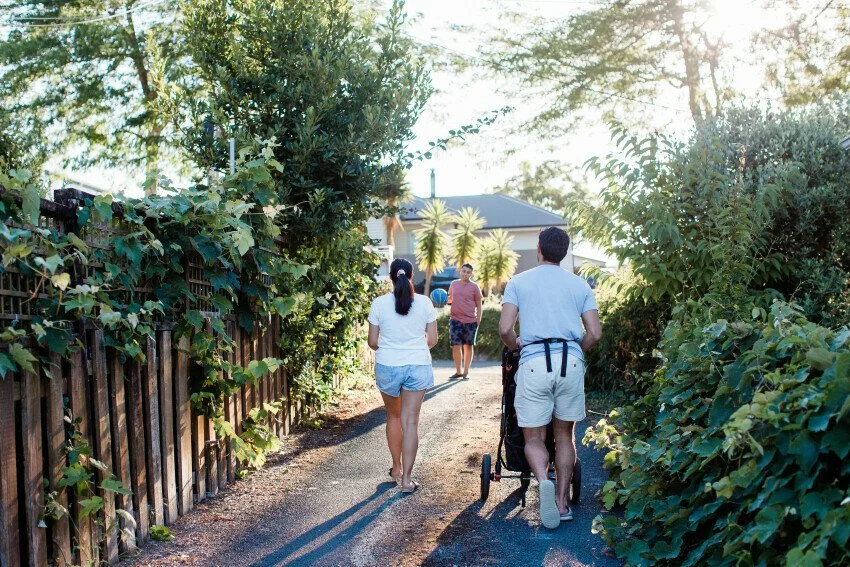Connecting parents of young children to build stronger communities
Setting out to strengthen parenting skills through community connection in Aotearoa, and ending up with a whole lot more
What do parents of young children need?
Raising babies and young children is an experience filled with love and joy, but parenting is also exhausting, relentless and often quite lonely. When we asked parents and families on low incomes in Aotearoa New Zealand what help they needed as they raised their young children, they were not asking for more comprehensive parenting support services. Their most common responses related to reducing social isolation.
We heard that many parents now live further from whānau than they might have done growing up. COVID-19 had further emphasised the need for a strong local community of support. One parent living in West Auckland described her challenges: “Lack of money means you have a lack of things to do, you can’t get out of the house, you live in a suburb which is not good, you feel unsafe... When it’s raining you are stuck.”
Parents of under-fives want safe, easy to get to, child-friendly places to go and affordable things to do with their children. They also want opportunities to meet other parents in their community.
“Harakeke creates connections and now lifelong friendships. I never want to leave this community.”
The hypothesis for Harakeke is simple…
…when you’re connected to and supported by other parents, you parent better.
In Harakeke (named after the flax bush because of its symbolism of whānau and the importance of nurturing growing children) parents design and deliver their own weekly, hour-long, free to low-cost meet-up activity for other parents in their local areas. This could be spending time at a local playground with a few other parents and their kids, hanging out at a nearby cafe or anything the parents choose. Parent leaders are given light support by the project team (and a grocery voucher for each week they run activities to recognise their time and effort), and support each other with monthly meet-ups in “pods” to discuss successes and what they could improve.
Between 2016 and 2020, 60 parents ran weekly activities in two communities in Auckland, with 300 families taking part. Thanks to support Thirdstory (then Innovation Unit Australia New Zealand) received from JR McKenzie Trust, we supported communities by working with them to identify leaders and participants. We recruited parent leaders, coached ‘pod’ and parent leaders to convene diverse families and design activities, and brought leaders together to share experiences and advice across communities. In 2020, we then worked with communities to evaluate the impact of Harakeke.
The impact of Harakeke reached beyond parenting
While Harakeke set out to influence parenting skills, it also contributed to a stronger sense of wellbeing and community connection for those who participated.
Being able to spend time together regularly reduced social isolation for parents, increased a sense of safety in communities, strengthened parents’ sense of identity and shared cultural values, built confidence and even led to new skills and employment opportunities.
One mother said: "Harakeke creates connections and now lifelong friendships. I never want to leave this community." Another commented: “Now I know at least one person in every street… it has really opened up the community for us.”
Harakeke can be used as a model to be used by parents in other communities and locations. Learning from the families who have played a part, they see there are some parts of Harakeke that are essential to its success and others that need to be flexibly adapted to context. You can find out more about how the Harakeke model works in this report: Harakeke: A model for parent-led support.

